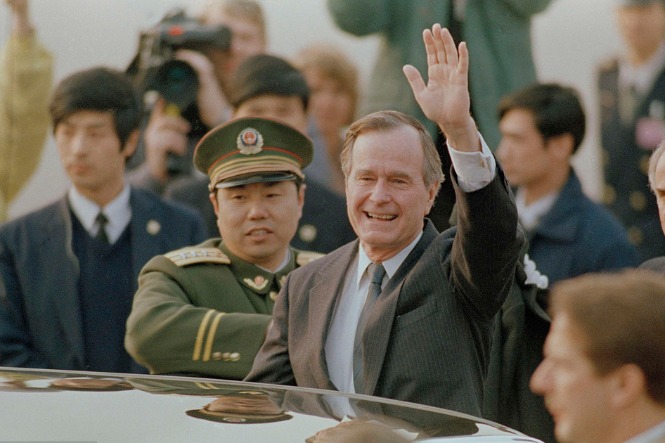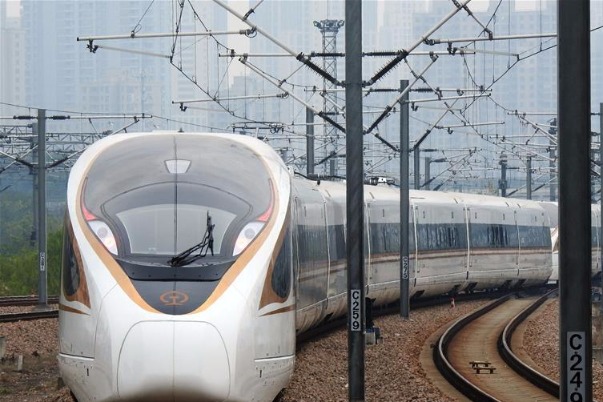In the final analysis, half measures may not be enough
For decades, China has capped foreign automakers' stakes in joint ventures with domestic car companies at 50 percent. When China's Ministry of Commerce last fall proposed a rule change that would permit foreign partners to own more than half of a Chinese automotive joint venture, the announcement touched off a fierce debate between policymakers and state-owned car companies over how to boost the domestic auto industry.
The issue heated up during the recent sessions of the National People's Congress and the Chinese People's Political Consultative Congress, when China's auto lobby urged Beijing to support local carmakers and to abandon the idea of further opening the domestic industry to foreign auto concerns.
Some US observers see the Ministry of Commerce's concept as reasonable. It's not hard to understand why: Opening up the Chinese automotive market would give foreign firms greater access to profits while giving them more control over their ventures in China. As a US spokesman for Volkswagen AG put it in an interview with China Daily: "We are very satisfied with our joint ventures and we have been successfully working together over the decades. And together we strive to pursue this road of successfully working together to face the challenges ahead of us."
Opening up the domestic industry to foreign nameplates would allow Chinese manufacturers to absorb more valuable foreign technology and management expertise. And if China seeks to become a global export hub, "encouraging foreign automakers to continue to invest in advanced technologies makes sense," according to Tim Dunne, director of automotive industry analytics for California-based market research company JD Power and Associates.
Miao Wei, minister of Industry and Information Technology, has said that the 50 percent limit for foreign partners will stay in place - for now. But in encouraging the near-term creation of a flexible share structure he alluded to a possible loosening of the joint venture rules. "We will try our best to give you time to prepare," Miao said. "The ultimate goal is to support our domestic brands and make them competitive enough on a global scale in the process."

The automakers' frustration was expressed by Wu Sh-aoming, FAW Group's deputy general-manager, who said: "The automotive industry is our economic pillar, different from other ordinary manufacturing industries." Parts of the issue, however, are moot. In terms of attracting more investment, Dunne said, "all of the world's largest automakers from Europe, Japan, Korea and the US have substantial production operations in China, and they continue to expand operations with or without regulatory changes."
Automotive joint ventures in China go back to the early 1980s. On his first state visit to the US, Chinese leader Deng Xiaoping became convinced that China's economy depended on bolstering its technology, engineering and commerce. He initiated reforms to open the country to global trade and investment, including the automotive industry.
The joint ventures - which allowed no more than 50 percent foreign ownership with a domestic collaborator - allowed the Chinese partners to "rightfully claim half of any profits from the venture, it allowed Chinese nationals to learn about modern manufacturing and distribution while on the job, and it allowed the Chinese partner to be an equal partner in decision making at the venture," Dunne said.
After China joined the World Trade Organization in 2001, "the floodgates opened, and many automakers invested in a China joint venture", Dunne said. "Jobs were created, profits flowed to the local JV partners, and the Chinese had a say in how companies were run - especially the hiring aspects - which gained them favor with provincial and local governments eager to create employment in their districts."
Among US automakers, General Motors excelled at building joint ventures in China. GM, which launched its first China venture in 1997, today has 12 joint ventures and two wholly owned foreign enterprises, according to the Detroit company's website. It also employs 58,000 people in China. In 2013, domestic sales of vehicles by GM and its joint ventures jumped 11.4 percent to 3.2 million units, the website said.
In a statement emailed to China Daily, GM China Communications Director Dayna Hart said: "We have been fortunate to work with great partners in China We will continue to work together with our partners to do what we think is best for our companies and our customers."
In the final analysis, the domestic auto lobby's opposition to loosening the joint-venture rules is understandable. But what the lobby may fail to accept is that the regulations have fallen short in their ability to "engender knowledge transfer" - technology transfer and management expertise - to the local automakers, Dunne said. "It's difficult to transfer 100 years of engineering and manufacturing acumen in just a few years," the analyst said.
The joint-venture issue may just obscure the crossroads at which China's car industry finds itself.
Contact the writer at michaelbarris@chinadailyusa.com.
(China Daily USA 03/25/2014 page2)


















